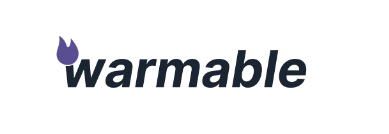Last updated on February 27th, 2024 at 04:50 pm
Common boiler insurance plans can include parts replacement, an annual boiler service and emergency call outs.
Boiler troubles can be a real headache, can’t they? That’s why Warmable want to inform you about the ins and outs of boiler insurance coverage. It is important to have reassurance that warmth and comfort of our homes are safeguarded against unexpected boiler mishaps.
Understanding what’s protected under boiler insurance is crucial for peace of mind. We’ll explore which mishaps are covered, from breakdowns to malfunctions, and provide you with the knowledge to choose the right policy for your home, ensuring you’re never left in the cold.
What is Boiler Insurance?
Boiler insurance is essentially a safety net for homeowners, designed to cover the costs associated with repairing a boiler should it break down. It’s a type of insurance policy tailored specifially to manage the risks linked to boiler operation. We realise that the heart of the home often revolves around a functioning boiler, from providing hot water to ensuring our spaces are comfortably heated.
Boiler cover plans vary widely, but usually, they include:
- Labour Costs: Charges related to the time spent by a technician to repair or service the boiler.
- Parts Replacement: If a specific part fails, it’s covered by the policy.
- Annual Service: Most policies offer an annual boiler check-up to ensure the boiler is running efficiently.
Every boiler insurance policy has its own set of terms and exclusions. It’s imperative we’re familiar with what our policy entails, as some may only cover the boiler itself, while others might include the entire heating system. Exclusions can often catch policyholders off guard; things like older boilers, certain brands, or lack of regular servicing might not be covered. Therefore, reviewing the policy details before purchasing can save us from unexpected surprises and expenses down the line.
Typically, boiler insurance is offered as a standalone product or can be bundled with a home insurance package. You’ll want to weigh the convenience and potential savings of a combined package against the specifics of standalone coverage to decide which best fits your needs.
Types of Boiler Insurance Coverage
Boiler insurance comes in various forms, providing different levels of protection depending on homeowners’ specific needs. We’ll explore the common types of boiler insurance coverage so you can make an informed decision.
Standard boiler insurance typically includes the basics. In the event of a malfunction, you’re covered for:
- Labour Costs
- Parts Replacement
- Emergency Call-Outs
Bear in mind though, this standard policy won’t cover annual servicing, so you might need to consider an add-on or a different policy if that’s a priority for you.
On the other hand, Boiler and central heating insurance extends coverage to the entire heating system. This comprehensive option not only takes care of boiler breakdowns but also faults within your heating infrastructure such as:
- Pipes
- Radiators
- Thermostats
Selecting this cover ensures a broader protection, safeguarding against a wider array of potential problems.
For those seeking peace of mind year-round, Boiler, heating, and home emergency insurance offers an all-encompassing safety net. This includes all the features of the previous coverages, plus assistance with:
- Electrical Failures
- Plumbing Issues
- Security Incidents
It’s an umbrella policy that envelopes various home emergencies beyond just the heating system. When choosing your policy, it’s critical to match your coverage level with your personal risk tolerance and maintain a balance between protection and cost-effectiveness.
What Boiler Mishaps Are Covered?
When we delve into the specifics of boiler insurance, we find that a variety of mishaps are typically covered. These policies are designed to protect us from the sudden and unexpected. Let’s explore some common boiler-related problems that are usually included in the coverage:
- Breakdowns: If our boiler fails, insurance can cover the cost of repairs or even a replacement if it’s beyond economical repair.
- Leaks: Should a leak occur, insurance often includes the repair of the boiler and any damage caused by the leaking water.
- No Heat or Hot Water: One of the primary concerns during colder months is losing access to heating or hot water; boiler insurance usually steps in to resolve these urgent issues swiftly.
It’s important to note, however, that there might be exclusions or specific conditions under which these mishaps are covered. Wear and tear is a term frequently mentioned in the fine print of the policy documents, indicating that boilers beyond a certain age or without regular maintenance might not be eligible for full coverage.
Moreover, the level of insurance we choose determines how comprehensive the protection is. Some policies might only cover the boiler itself, while others extend to the entire heating system. We must pay due attention to policy details to understand what incidents we’re guarded against.
What Is Not Included In My Boiler Insurance?
While we understand the appeal of having comprehensive boiler insurance, it’s crucial to recognise the exclusions and limitations often embedded in these policies. Not all circumstances that lead to boiler malfunctions are covered, and knowing these can save us from unpleasant surprises when we need support the most.
For instance, most boiler insurance won’t cover:
- Pre-existing conditions that were apparent before the policy started
- Boilers above a certain age, typically over 7 to 10 years
- Lack of maintenance, where the owner has not adhered to the manufacturer’s guidelines for upkeep
- Damage resulting from frozen pipes unless explicitly stated in the policy
- Scale build-up and sludge, which are generally considered a maintenance issue
Moreover, there’s often a ‘no-claims’ period immediately after the policy commences, usually around 14 to 30 days, during which claims are not accepted. This is a precautionary measure insurers take to prevent claims for issues that existed prior to the coverage.
The cover limits are another aspect we need to pay attention to. Policies typically have a maximum payout limit per year or per claim, which can influence the extent of repairs or replacements offered under the insurance. Here’s a quick outlook on some common financial limits in boiler insurance policies:
| Type of Limitation | Typical Limit (in GBP) |
|---|---|
| Annual Claim Limit | 1,000 – 5,000 |
| Single Claim Limit | 300 – 1,500 |
| Excess Fee | 50 – 100 |
Remember, it’s in our best interest to carefully review the policy document and clarify any uncertainties with the insurance provider before we commit. Ensuring that the terms align with our expectations will help us avoid any potential gaps in coverage.
Choosing the Right Boiler Insurance Policy
When grappling with the myriad of boiler insurance options available, it’s crucial to weigh up the specifics of what each policy offers. It starts with a thorough evaluation of boiler age and model, as certain policies may not cover older models or those deemed high-risk due to discontinued parts.
Here’s what we need to consider to ensure our pick aligns with our needs:
- Policy Inclusions: Examine the extent of coverage, such as repairs, labor, and replacement parts.
- Excess Fees: Be aware of the amount we’ll need to pay towards any claim.
- Customer Reviews: Look for feedback from current policyholders to assess the insurer’s service quality.
- Response Times: Check the average time it takes for the insurance provider to respond to a claim.
- Boiler Inspection: Find out if regular boiler inspections are part of the deal, as preventative measures can save future headaches.
Cost is often a decisive factor, but it shouldn’t be our sole consideration. We’re on the lookout for value for money rather than just the cheapest option. A slightly pricier policy might offer broader coverage or a more reliable claims process, which pays off when we’re in a pinch and need swift boiler repair. Additionally, don’t overlook the significance of customer service—the ease of reaching an insurer and their willingness to provide comprehensive support during stressful times is invaluable.
When reviewing potential policies, we must also take service interruptions into account. Policies may differ in their guarantees regarding the speed of service, which can make a significant difference during the cold months when we rely heavily on our boilers for warmth.
Conclusion
Choosing the right boiler insurance policy is crucial for our comfort and peace of mind. We’ve explored the various factors that should influence our decision, understanding that the cheapest option isn’t always the best. It’s about finding a balance that suits our needs and ensures we’re not left in the cold when it matters most. Remember, a reliable boiler insurance policy isn’t just a purchase; it’s an investment in our home’s future.
Frequently Asked Questions
What Factors Should I Consider When Choosing Boiler Insurance?
Consider the policy coverage, excess fees, customer feedback, response times, boiler inspection services, and the efficiency of the claims process. Don’t focus exclusively on cost; broader coverage with reliable service may be worth a slightly higher price.
Is It Important To Read Customer Reviews Before Selecting a Boiler Insurance Policy?
Yes, reading customer reviews is crucial as it provides insight into the insurer’s customer service and claim handling efficiency, which can be indicative of your potential experience.
How Do Excess Fees Affect My Boiler Insurance Policy?
Excess fees are the amount you pay towards a claim. A higher excess might mean lower premiums, but you’ll pay more out of pocket if you need to make a claim. Choose a balance that suits your financial situation.
Will Boiler Insurance Cover Regular Boiler Inspections?
Yes, some boiler insurance policies include annual boiler inspections, which can help in preventative maintenance. Ensure this feature is part of your policy if it’s important to you.
Why Shouldn’t I Choose Boiler Insurance Based Solely On Cost?
Choosing based solely on cost can lead to inadequate coverage. It’s essential to balance the price against the benefits provided to ensure comprehensive protection and peace of mind.
What Guarantees Should I Look For Regarding Service Speed During Interruptions?
Look for policies that offer guarantees on response times, especially during service interruptions. This will ensure that you receive prompt assistance when you most need it.


